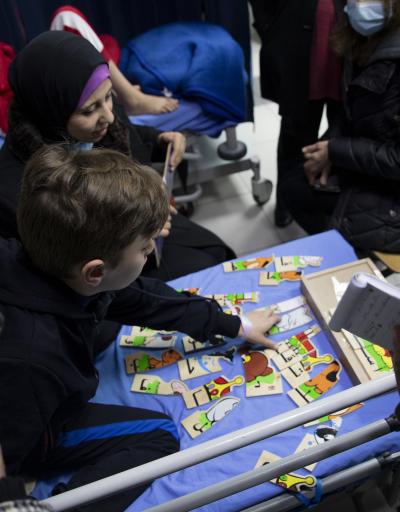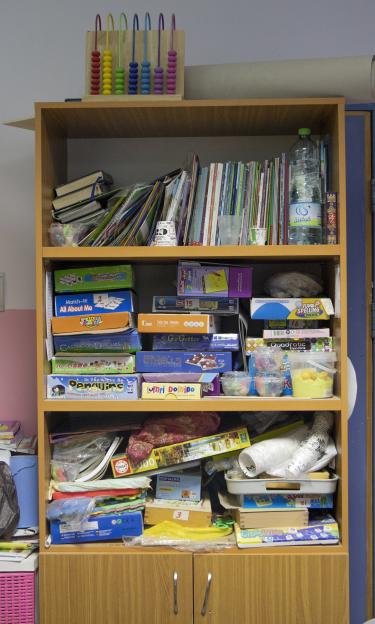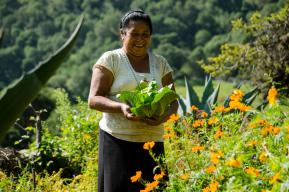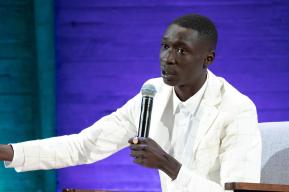I would rather go to regular school with other children, but the teachers and nurses at the hospital are very kind, and they make it okay.
For 11-year-old Shahd*, a school day looks different than for most children her age.
Shahd has a chronic kidney problem and needs frequent dialysis. Because of this, she is unable to follow a regular school routine. Instead, the school must come to her at Augusta Victoria Hospital. She attends classes with caring teachers who come to her bedside and make sure that despite her illness, she does not miss out on the opportunity to learn.
To support children receiving long treatment in hospitals, the Ministry of Education (MoE) has opened four so-called “Determination Schools” in Palestine’s West Bank. Within the framework of the Multi-Year Resilience Programme (MYRP) in Palestine, funded by Education Cannot Wait (ECW), UNESCO is providing support to all four of these schools. These Determination Schools provide flexible education to children unable to participate in regular classes at their local schools. The MoE recognizes that children who are hospitalized for prolonged periods of time are at a significant risk of falling behind in their studies. Determination Schools are currently operating in Augusta Victoria Hospital in Jerusalem, An Najjah Hospital in Nablus, the Palestine Medical Complex in Ramallah and in Beit Jala. These schools all provide personalized education to children receiving prolonged medical treatment.
“The students we teach here are often sad and depressed, and many are deeply frustrated because they don’t understand the reason for their illness, or why they have to keep coming to the hospital”, says one of Shahd’s teachers, Hiba Sonokrot. “This is one of the main challenges. For this reason, we need to be very supportive and teach them in a different way. We need to be not only a teacher, but a friend and a mother as well”.
UNESCO, together with MoE, is scaling up the support it provides to these teachers to empower them with the knowledge needed to support affected students, including individualized plans, psychosocial support and inclusive education. This helps children to learn despite difficult circumstances and builds their long-term resilience and ability to return to the regular school system in the future.
It is not only the children in hospital who face challenges. Teachers, nurses and families working closely with children who have a closed prognosis, or a low life expectancy are anxious and worried about the child’s future. To cope, the teachers themselves need specialized training and support to daily manage these stresses. In addition to health-related worries, the children and their families hold concerns related to travel through checkpoints: often they must travel far from their families, who are left behind in Gaza or the West Bank due to a lack of travel permits. This limits the number of supportive family members and loved ones who are present thus placing additional strains on all.
Before beginning her treatment at Augusta Victoria, Shahd had been missing education because she did not want to go to school. Not only did her regular school not have a good support system for someone with her illness, she was also reluctant to attend because of the stigma that illness carries. Since she arrived at the hospital four years ago, however, she has learned to read and write and is almost up-to-date with her education.
For Shahd and the other students at Augusta Victoria and other Determination Schools the future is uncertain. Some of them may face chronic illness for the rest of their lives; others may recover. In the meantime, this flexible provision of education helps to achieve important objectives. Attending classes and keeping up with learning creates an enhanced sense of normalcy and helps build resilience and hope for the future.
Shahd* was supported by UNESCO as part of the Multi-Year Resilience Programme funded by Education Cannot Wait.
*Name changed to protect identity










